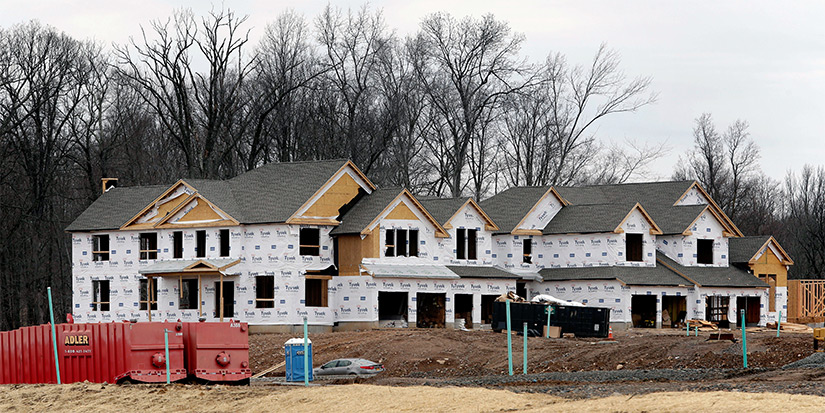The Virtues Of Debt

I am a funny kind of trader because I hate taking risks.
I am not referring to trading and investing. With those, I have shown a willingness to take huge amounts of risk—which occasionally backfires on me.
I am fond of saying that the two sources of financial stress are debt and risk. I love risk, but I hate debt.
I am turning 47 years old on Saturday. I am, theoretically, in my peak earning years. Business is good. So my wife and I bought a piece of land, and we’re going to build our dream house.
Field of Dreams
This is not an ideal time to be building a house.
- Interest rates are low, and they might go up, so I actually have an interest in locking in rates soon.
- Building costs, however, are sky-high.
Ultra-low interest rates have set off a building boom and sparked shortages of raw materials like lumber. Some have encouraged me to wait for lumber prices to come down before building—I am worried they might go up even more.
Plus, you never really want to take big financial risks at the top of the cycle. You want to take big financial risks at the bottom of the cycle. So the timing is all off.
Still, we bought several acres of land, a BB shot from the beach, and we’re going to build a very large house. And yes, it’s just me and my wife—no kids—just our five cats, which I hope to turn into seven cats.
We don’t need the space. We don’t even need the house. We’re doing it because we can.
This is more or less the purpose of money.
Our Financial Lives Don't Stop with Saving & Investing
My competitors in the personal finance space are good at solving the indebtedness problem—getting people out of credit card debt, student loans, etc. so they can build savings.
But what do you do once you have savings? What do you do when you have no debt and a big pile of money in the bank account?
Money is meant to be enjoyed. For some, the best expression of that enjoyment is a house that you design for yourself, that has never been lived in by anyone else, and has everything you ever wanted.
A few features that we want: a lap pool, a big shower room with multiple shower heads, office/music/radio space for me, and the biggest living room—ever—with floor-to-ceiling windows that face the woods.
The architect is excited because he can envision this house ending up in magazines. It’s going to be cool.
Debt
I like to dream big. But I hate, hate, hate debt with a burning passion.
We took out a mortgage for the house that we are currently living in. I hated that mortgage so much that I paid it off in three-and-a-half years.
I’ve done the math on building this house a thousand times. The monthly payment, while large, fits comfortably within my income. The property tax is manageable. I simply won’t be saving as much.
The only way this goes to tapioca is if something goes really wrong with my newsletter business, and it’s been in an upward trend for 12 years.
So I’ve done my due diligence. And I’m still worried.
Why put myself through this? I live in a house that’s paid for, a house that I really enjoy.
Well, there are some annoyances…
We live in a neighborhood with a lot of rental houses. When the weather warms up, the place starts teeming with activity. People set off fireworks all around us every night for four months straight. The weather warmed up the other day and we already got fireworks—on February 27.
Time to Upgrade
I call this the first-class principle—people don’t sit in first class on an airplane because the seats are more comfortable. They pay more for first class so they can get away from everyone in coach.
My competitors say that debt is evil. Is it? Take a walk down the street in any major city and look up at the tall buildings. Each of those buildings was financed with debt.
We can debate whether debt is evil. I can give you a shortlist of countries in the world that I would refuse to travel to—it would be the ones that prohibit the payment of interest. They remain chronically underdeveloped.
But no one should argue that debt is dangerous.
The problem with debt is that it is a bit like a game of financial Jenga—the whole thing will collapse all at once.
I suppose I could wait until I had the liquidity to build the house. Actually, I already do. But then I would have to sell stocks, and there would be tax consequences, and so on.
Time for the application of a little bit of leverage. It is a bet on myself.
And that is the thing about debt that the gurus miss…
Inherent in debt is a philosophy of optimism. The optimism that things will go well, you’ll earn more money, and you’ll outgrow the debt in real terms.
I don’t dislike debt because I am a pessimist—I dislike it because interest is about the dumbest thing in the world to spend your money on.
But I’m happy to bet big on myself. I’ve done it before, and I’ll do it again.
Disclaimer: The Mauldin Economics website, Yield Shark, Thoughts from the Frontline, Patrick Cox’s Tech Digest, Outside the Box, Over My Shoulder, World Money Analyst, Street Freak, Just One ...
more


